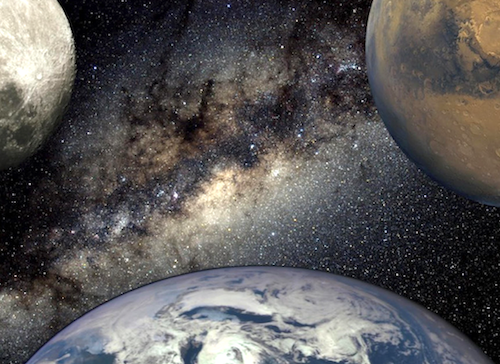The Rice Space Institute (RSI) has awarded $150,000 in seed funding to Rice University researchers to further our understanding of the universe and humanity’s place in it. This funding will support six projects, each receiving $25,000 for one year until June 2025.
The initiatives will promote space-related science and engineering, highlight high-impact studies that align with RSI’s vision, foster broad collaboration and have the potential to attract external funding.

“These projects collectively represent RSI’s commitment to pioneering studies that advance Rice’s space research portfolio,” said David Alexander, professor of physics and astronomy, director of RSI and member of the Texas Aerospace Research and Space Economy Consortium. The six projects include:
Haptic sensory feedback augmentation to mitigate vestibular deficits following microgravity exposure
Primary investigator: Marcia O’Malley
Co-primary investigators: Vanessa Sanchez, Shane King and Kyra Stovicek
This project focuses on a device to mitigate balance and movement impairments in astronauts due to exposure to microgravity, where the pull of gravity is greatly reduced enough to make things seem weightless. The device will improve astronaut safety and performance during space missions by providing vibrotactile feedback proportional to foot pressure.
Spark plasma sintered high-density and lightweight boron nitrides ceramics for radiation shielding applications
Primary investigator: Robert Vajtai
Co-primary investigator: Abhijit Biswas
This initiative will create high-density, lightweight boron-nitride ceramics for radiation shielding in space, addressing the challenges of harmful space radiation with materials offering superior mechanical strength and thermal properties.
The role of the environment in planet formation
Primary investigator: Megan Reiter
The plan for the environment in planet formation project will involve Rice students, postdoctoral researchers and faculty in a conference at the Rice Global Paris Center. The event will foster collaboration between Rice, RSI and international institutions to explore how interstellar environments influence planetary system architecture.
Modeling framework for bioelectricity and its effect on the mechano-biology of wounds to accelerate healing in microgravity environments
Primary investigator: Raudel Avila
Co-primary investigators: Swathi Balaji and K. Jane Grande-Allen
Research on the effect of bioelectricity — the electrical currents that are generated by or occur within living organisms, tissues and cells — on wound healing in microgravity environments will include developing models to understand how it can compensate for the lack of gravity, thereby accelerating tissue repair and reducing muscle and bone loss for astronauts.
Development of 3D-printed waveguide arrays for snapshot spectrometers for Earth remote sensing observations
Primary investigator: Tomasz Tkaczyk
The printed waveguide arrays project will develop 3D waveguide components and a hyperspectral imaging system for Earth remote sensing, measuring water vapor fluxes over complex land surfaces. The system will provide valuable data for understanding the water cycle on Earth and other objects in the solar system.
Co-advancement of formal methods and prognostic digital twins for reliability and resilience of space robotics
Primary investigator: Fathi Ghorbel
The project aims to enhance the reliability and resilience of space robots. By integrating advanced methods, this research seeks to improve the performance and lifespan of robotic components operating in remote and unpredictable environments.
“This reflects RSI’s commitment to pioneering studies that can further our knowledge of the solar system,” said Andrea Isella, associate professor of physics and astronomy and the RSI Director of Research.

